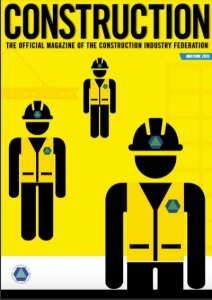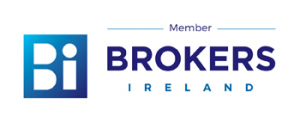In this month’s Construction Magazine, Susan writes when it comes to your pension, you should stay the course of your investment strategy.
No doubt, at this point, you have heard reference to the Great Depression of the 1930s. While there are technical similarities, we live in a very different world with very different economic and fiscal policies. From reading current commentary from across the globe and across partisan lines, one thing is clear – we do not know what economic recovery will look like.
 I am writing this piece, while working from home, unsure of what the future holds. My role advising clients around their pension savings and retirement planning has meant that I certainly have not had time to be bored during the lockdown.
I am writing this piece, while working from home, unsure of what the future holds. My role advising clients around their pension savings and retirement planning has meant that I certainly have not had time to be bored during the lockdown.
You may not have had time to evaluate your own pension savings yet. You may be concerned about the damage the recent markets have done or you may have panicked and got out of the markets completely. While economic conditions are volatile, pensions are long-term savings schemes. Pension funds invest in stocks and shares in order to keep your money growing in line with inflation and hopefully provide additional growth.
VOLATILITY AND RECOVERY
Stocks and shares are the riskiest asset class as they display high levels of volatility. The volatility refers to the potential ups and downs that a share may experience over time. There are specific events that occur highlighting how volatile this can be, notably the 1929 Wall Street Crash; Black Monday in 1987; and the global financial crisis of 2007-2008. The common denominator of all three is the fact that the economies all bounced back. For the purposes of this article let me focus on the global financial crisis, as it is the most recent in our memories and the recovery has been heavily documented.
Late 2007 saw the beginning of the global financial crisis. This crisis was triggered in the US as the housing bubble burst and the combination of subprime lending and the complex financial structures underpinning the debt caused a wave of problems for global financial institutions. There was a chain reaction throughout global economies. Closer to home, our own property bubble burst, exposing the weakness of Irish financial institutions,which included the now defunct Anglo Irish Bank. In September 2008, Ireland officially entered recession and it was not until early 2009 that the full impact of the Irish financial crisis was exposed. Ireland did not officially exit the recession until September 2013.
It is a story we all know only too well. It had a huge personal impact on many pension savers and investors. However, from March 2009 until the middle of February 2020, there was period of significant gains, predominantly driven by US equity markets. The question economists and investors had been pondering for the last few years was, When would it end? Well, now we know.
The point here, however, is that large falls happen, inevitably followed by large gains. This brings me to the next point: What should we do during such shocking times?
ECONOMICS OR EMOTIONS
When reviewing the situation with pension savers, our experience is that only 20% of people make any investment decisions over the lifetime of their savings. However, during a market downturn, the majority of those that do make a decision opted out of the markets so as not to face any further losses. This on the surface seemed reasonable, however, when markets turn upwards, most of those that opt out at the bottom do not participate in the upturn, thereby locking in the losses. This is due to the fact that it is incredibly difficult to time the markets.
After significant market events, many investors avoid the market altogether. This overreaction by investors makes sense according to behavioural economists, such as Meir Statman, Professor of Finance at Santa Clara University, who says “We have a tendency to extrapolate not only the most recent experience, but the most vivid. Even though the market has gone up substantially, when people think about it, they don’t think that it’s gone up.”
In other words, investors remember the trauma of the losses and nothing else. In short, there is no crystal ball to show us how the world will look beyond the current pandemic. However, for those of you who are in the privileged position to be employed, you should continue to save for your retirement and stay the course of your investment strategy.
Here to help you navigate your way to financial security.
The Milestone Advisory team are qualified financial services consultants. We specialise in helping professionals in the construction sector and related industries. Our team will work with you to review your finances, explaining your options in clear English.
No jargon – just the facts.
For further information please contact Susan O’Mara via email or phone: (01) 406 8020. Milestone Advisory DAC t/a Milestone Advisory is regulated by the Central Bank of Ireland.





